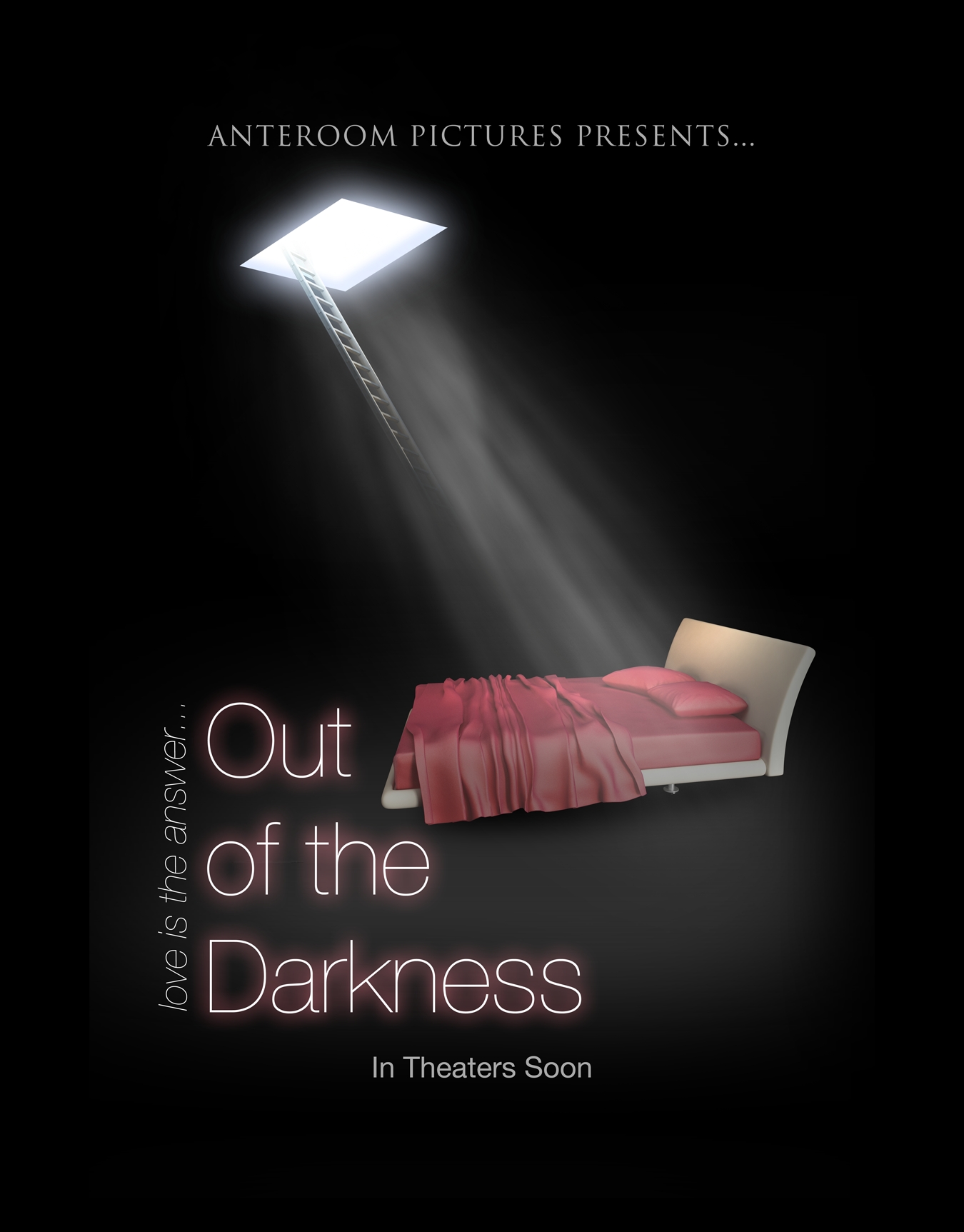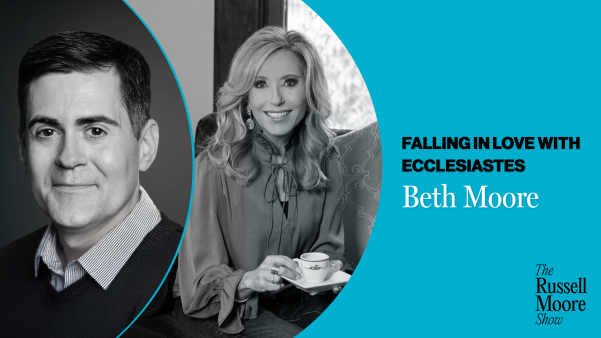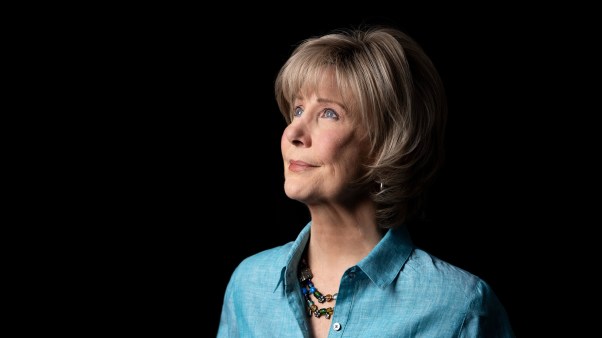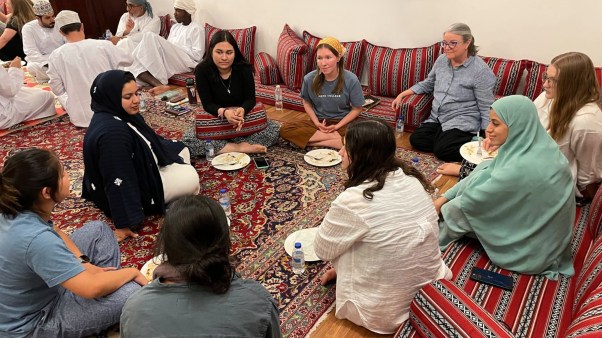 Christmas as a consumer event is designed for people like me. Saps, that is. People who inhale the smell of gingerbread and want to buy the whole tin because it reminds us of a happy memory, or a loving grandma, or the Best Christmas Ever.
Christmas as a consumer event is designed for people like me. Saps, that is. People who inhale the smell of gingerbread and want to buy the whole tin because it reminds us of a happy memory, or a loving grandma, or the Best Christmas Ever.
This is sentimentalism, the emotional shortcuts we take to try and re-live a meaningful moment. A holiday jingle, candlelight, the smell of pine…these become the icons, the portals by which we attempt to briefly escape to a better kind of world, one untarnished by bad experiences, relational messes, debt, loss, or regret.
Take out the consumerism, and it doesn’t sound like a bad thing. The world could use more joy, more peace, more light and laughter, right? Shouldn’t Christians be at the center of it all? Isn’t that part of the Good News?
But we forget that memory is selective, that, through most family holidays, real people are probably arguing, or sick, or play-acting, or hurting. Forget that this world simply cannot—cannot—give us the peace that passes all understanding. In our busyness and exhaustion and sadness, the trappings of Christmas become the shortcuts by which we attempt to manufacture the elusive “joy” the world itself can never provide.
If the mere smell of gingerbread can bring joy to the world, then what do we need Jesus for?
“The deepest enemy to Christianity is not atheism; it's sentimentality,” says renowned theologian Stanley Hauerwas. It’s taken me a long time to understand what he means. But I think I’m beginning to get it. If the mere smell of gingerbread can bring joy to the world, then what do we need Jesus for?
I’ve started listening to Over the Rhine’s new Christmas compilation Blood Oranges in the Snow. This is a band that stands on the ragged edge of what the holidays should be but aren’t. They acknowledge that things are hard, period, with a little beauty—from the lilting tune “Let it Fall” (“whatever we’ve lost / I think we’re gonna let it go / let it fall / like snow”) to their evocative “Bethlehem” (“Mary, she was just a kid / Jesus was a refugee / a virgin and a vagabond / yearning to free”). These lyrics are not your cheery Christmas fare, not the sentimental memory-triggers I typically love. They are honest. If Hauerwas isn’t convincing enough, saps like me need Over the Rhine.
This was the album playing in my head as I returned from visiting a troubled friend recently. My pastor-husband and I met her four years ago when she was staying at the city homeless shelter. She and her fiancé attended our church on and off, but they dropped off the radar, as the chronically displaced often do.
Last week she called out of the blue. She and her fiancé had just moved into a new place; they finally had a home for the holidays. But then he was arrested; the bottom had fallen out; she did not want to live. She told me all the different ways she was planning to die. And because this is what must be done, I told my husband to call 911 and then got in the car, clutching the slip of paper with her address in my cold hands.
It was a long half-hour winding through dark city streets, the beginning of flurries in the air. I was hoping for emergency lights to help me find the place, but her building was quiet. I buzzed her number, and there she was, wailing in the hallway at the sight of me. The police had come for a well-check and determined she was fine.
Do you know the smell of poverty? Of hopelessness? It hangs on you for days. When we ask to bear one another’s burdens, that’s not one we ask for. But there it is: I still smell it, hidden in the folds of my coat, the coat that rested on her chair for three hours while we talked about God and Jesus and suicide and the three babies she says she killed through abortion and her fiancé’s good heart and the fact that she could find no joy, no love, no feeling in the world.
“The only place I find peace,” she said at one point, “is at church.” “Of course,” I said, “because Jesus is there.” We agreed that Jesus was also here, in this barely-lived-in apartment with the boxes and the mess and the emptiness. We prayed. She promised not to harm herself; we both would call her case manager in the morning. It was enough to go on, for now.
It’s hard to sing “There’s No Place Like Home for the Holidays” after a night like that. The very words would have stuck in my throat. “Home” is precisely what this friend thought they’d had, but home without her fiancé, without a future, was no home at all. And all my sentimental instincts were zero help. They were, in fact, the enemy: an empty promise to an empty feeling that takes as much, or more, than it gives.
This is what I think Hauerwas means: Whenever we as Christians craft nostalgic shortcuts to elusive, unreliable emotions associated with “home,” “peace,” “joy,”—through certain musical selections, children in cute costumes, flowers in memoriam, allusions to the supposed glory days of civic responsibility—we steer people away from the One who is our only home, the only source of true peace, true joy. We offer people a cheap, temporary substitute. We give them three seconds of emotional high but send them away feeling emptier than they were before. At least atheism promises nothing. We offer stones when they ask for bread.
So, how can we de-sentimentalize the holidays? It’s not just about acknowledging that real pain exists in our own families and situations. It’s about intentionally placing ourselves within the pain of others, seeking the hurting, the broken, the homeless, the mentally ill. Because as soon as we do, we recognize—like Over the Rhine—that the shortcuts don’t cut it. Remove the icon, the fluff, the idol of “Christmas” and there is nothing of substance underneath. My hurting friend does not need a simple dose of “Little Drummer Boy,” preschool angels with halos askew, and some artfully arranged poinsettias. She needs Jesus: not merely the source of all peace and joy, but the very Prince of Peace. Joy himself.
Sarah Arthur is the author or editor of nine books, including the recently released Light Upon Light: A Literary Guide to Prayer for Advent, Christmas, and Epiphany (Paraclete Press).
She wrote about wacky Nativity sets and other Christmas kitsch in the December issue of CT.
When filmmaker Sean Finnegan first considered doing a documentary on the problem of pornography, he knew he didn’t want to merely cite facts and figures interwoven with sound bites from experts. He thought the best way to tell this story was to, well, tell a story – and in the case of Out of the Darkness, now available on DVD, he found a powerful one in former porn actress Shelley Lubben, who now runs a ministry helping others to escape the sex industry and find hope and healing in Christ.
“Stories matter,” says Finnegan. “Most of the work done on pornography revolves around the issues of free speech and legislation, or the science behind addiction. But films are not essays or treatises. Films, like novels and poems and plays, are here to tell stories. And that is enough. If that is done well, we will, as Conrad said, gain a glimpse into the truth for which we forgot to ask.
“What stories can do for us is put faces on their topics. No matter how intense the debate around pornography becomes, the debate is really about human beings.”
Finnegan aims his camera at four such humans, including two who have come out of the darkness themselves, Lubben (don’t worry; this website is safe) and recovered sex addict Mark Houck. Finnegan also interviews family therapist Dr. Richard Fitzgibbons and sexual revolution historian Dr. Judith Reisman, who are much more than mere “talking heads” here; Fitzgibbons and Reisman also tell stories, including one Reisman shares about a daughter who was raped. While Lubben and Houck focus more on their personal testimonies, the other two describe the culture and societal breakdown that got America into this mess – and yes, it’s presented as chiefly an American problem. After all, almost 90 percent of all porn sites originate in the U.S.
Reisman gives some fascinating background about how Dr. Albert Kinsey’s post-WWII sex research – including the infamous “Kinsey Reports” – sparked America’s sexual revolution. She disputes Kinsey’s “science” as fraudulent, but says academia, the media, and the general population accepted it as true, including the notion that we’re all just basically sexual animals, so why not just go for it? Fitzgibbons adds that many of us have embraced what he calls a “sexual utilitarian philosophy,” resulting in a breakdown of the family, a collapse of morality, and on a personal level, profound loneliness, sadness, and narcissism. It’s all a recipe for the porn industry to flourish.
But most compelling are the stories from Lubben and Houck. The latter tells how he grew up a “normal” guy, but how, shortly after his father died when he was just 11, he became a loner. He discovered his first Playboy as a pre-teen and got hooked on the magazines, and later on Internet porn, to the point where he was spending up to four hours a day on his habit. Houck struggled with his addiction for 16 years before finally realizing how destructive it was and making the decision to break free. He did so mainly by recommitting to his Christian faith, and while that story isn’t told in great detail here, Houck makes it clear that his disciplined pursuit of righteousness that made the difference – more than his decision to simply avoid the temptation. It was the pursuit of the good more than the mere fleeing of the bad that helped him win the battle.

Like more than 1.5 million others, I’ve spent the last several weeks listening to Serial, a podcast that debuted in October from the producers of the popular public radio program This American Life. The first season of Serial investigates the 1999 murder of a Baltimore teen, Hae Min Lee. Adnan Syed, her ex-boyfriend, was charged with the crime the following year and is currently serving a life sentence, though he maintains his innocence.
Each new episode debuts on Thursday mornings. In between installments, avid listeners poll friends and strangers: “Have you been listening to the show? Do you think he’s guilty?” Everyone I talk to has an opinion. The show wraps up its 12th and final episode today, so well received that it’s already secured funding from sponsors and listeners for a second season. As The Wall Street Journal put it, “in the normally low-profile world of podcasting, ‘Serial’ is a certified sensation—a testament to the power of great storytelling.”
As a writer and editor, I appreciate well-researched and beautifully told stories. Serial has both. Creator and host Sarah Koenig spent more than a year examining the case before the first episode aired. She carefully presents new evidence each week along with interviews with Syed in prison, his former classmates, and legal experts, as well as her own shifting opinions.
As Serial surged to become the most popular podcast in history, I joined the chorus of voices wondering why audiences are so drawn to the show. After all, This American Life—done in a similar style, but with thematic, hour-long episodes each week—has never reached the fervor Serial has as a standalone podcast. What’s the difference?
As its name indicates, Serial tells bits of the story week by week, leaving listeners desperate for more answers. Instead, we get more details and, thus, more questions. Koenig says it best in last week’s episode, titled "Rumors," which examined Syed’s character and questioned whether he might be a psychopath. Koenig asks:
Can you tell, really? Can you tell if someone has a crime like this in him? I think most of us think if we know someone well, we can tell. We act as detectives all the time, gathering evidence. Certain scenes we remember or the look on someone’s face of that thing he said when he got mad. Then we act as a judge of character—this is just a human thing. But of course it’s slippery because it’s so subjective. One person’s evidence of good character is another person’s evidence of questionable character.
Our interest in Serial, and the story of Adnan Syed, rests in our innate desire for a conclusion to the story—and a just, fair, and right conclusion at that. We hate the idea that a guilty man still won’t admit his crime, and we really hate than an innocent man might be sitting in prison for a crime he didn’t commit. Despite Syed’s conviction in 2000, podcast listeners are analyzing new and old evidence alongside Koenig, and most of us are unsatisfied that we can’t tell whether Syed is a good guy or a bad guy.
Last week, Koenig announced that today’s episode of Serial would be this season’s last. Despite her research, it doesn’t seem she’ll reach any strong conclusions. For some listeners (including me) that’s frustrating. People are disappointed that the show won't declare whether Adnan Syed is guilty—as if it’s Koenig’s job to prove what took place after school one day 15 years ago in Baltimore. Fictional CSI shows get to explain exactly what happened and exactly why the killer did it. In real life, we don't get that sense of finality.
At some level, we all want the satisfaction of neatly packaged conclusions. But our willingness to hear out real stories with open endings reveals something greater to us. Through a lack of resolution, we face the frustration, mystery, and open endings that are an inevitable reality in our lives. Our collective craving for truth and justice in Hae Min Lee’s murder is a small reminder of a yearning that only heaven can satisfy.
As I continue to consider whether a teenage Adnan Syed could be capable of his ex-girlfriend’s murder, I’m reminded that someday we will no longer have to act as detectives, weighing and wondering the good and the bad for ourselves. In Revelation 19:1-2, in a passage referring to the fall of Babylon, the Bible reads, “Hallelujah! Salvation and glory and power belong to our God, for true and just are his judgments.”
In his book Mere Christianity, C. S. Lewis writes, “What can you ever really know of other people's souls — of their temptations, their opportunities, their struggles? One soul in the whole of creation you do know: and it is the only one whose fate is placed in your hands. If there is a God, you are, in a sense, alone with him.”
As Christians, we should continue to strive for truth and justice in this world. We have an obligation to. But our systems are imperfect, and so are we. We will get things wrong. We won't be certain. We don't know how to make it all right.
Yet there is a time coming when we won't be compelled to form our own opinions and judgements, nor will there be thieves who go unpunished or innocent people who sit in prison. Our longings for truth and justice will be fully satisfied by the power of our Great God who knows all, and is all.
Lesley Sebek Miller is editor of Kidaround Magazine. She blogs at http://barefooton45th.com and tweets as @LesleyMiller.
Lubben’s (pictured at left) devastating-but-ultimately-redeeming story is told in much greater detail. Neglected by her parents as a child and sexually molested by a teen neighbor when she was just 9, Lubben desperately sought love in all the wrong places. When her father kicked her out of the house at age 18, a pimp offered her solace and quick $35 – if she’d turn a trick. She ended up as a full-time prostitute and stripper, later transitioning to porn films. All along, she says, she was driven by her anger at her parents, her loathing of herself, and her desire to prove her value – worth she found from the johns who hired her and, later, the film directors who praised her. She ended up getting herpes and attempting suicide. When she finally met a man who fell in love with her, and not merely her body and what she could do with it, she was confused. But eventually the love was requited, she left the porn industry, they were married, and started attending church. As she grew in faith – and, like Houck, in her pursuit of righteousness – the old demons began to fall away, literally and figuratively. (Lubben believes that Satan has a field day with people in the porn industry, which she calls “a cult.”)
The film’s most moving comments come, not surprisingly, from Lubben, but this one was perhaps the most powerful: “When people view porn, they are really watching mentally ill and physically diseased people having sex.” Puts quite a perspective on it.
Since Lubben has left the porn industry, she has founded the Pink Cross Foundation, a ministry to reach out to porn stars and sex workers. She has helped more than 50 people leave those fields and find hope and healing.
There’s a lot of hope and healing in this documentary too. While made from a Christian perspective, it’s not preachy. It’s matter-of-fact and story-driven, striking just the right tone. Highly recommended; buy it here. Here’s the trailer:








